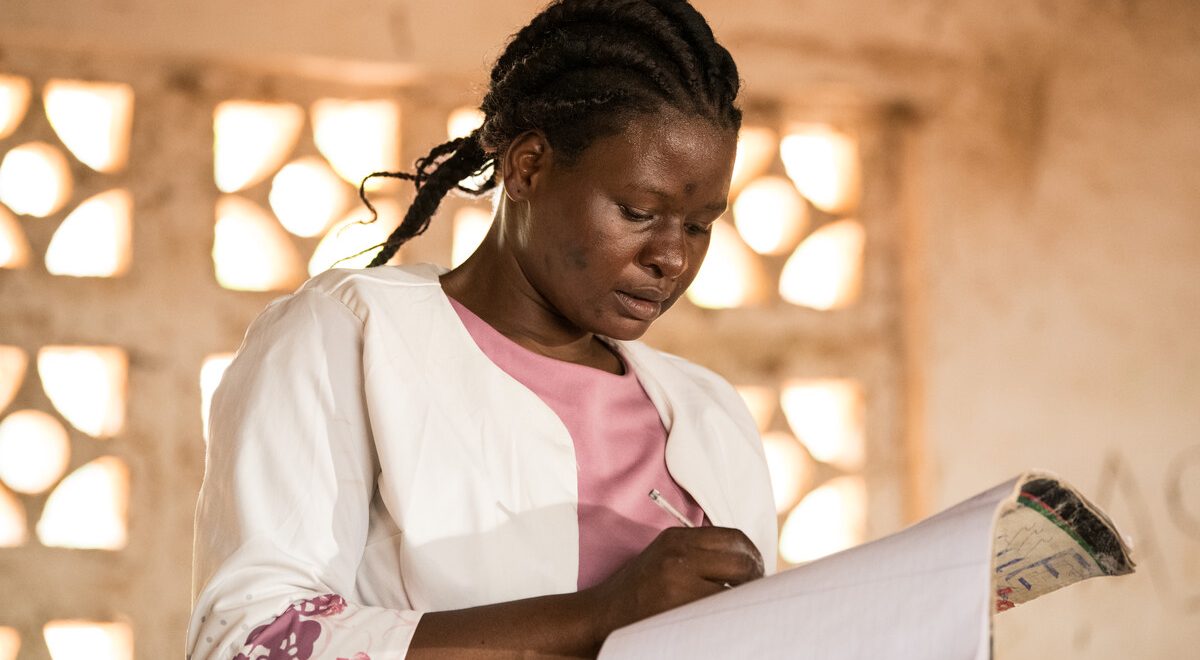- Ahead of the African Union (AU) Summit next week, a new report by ActionAid reveals that over three-quarters of all lower-income countries spend more on foreign debt than on their healthcare systems, and more than half spend more on debt servicing than education.
- Rich polluting countries owe low and lower-middle-income countries US$107 trillion in climate debt. This is more than 70 times greater than the total foreign debt of US$ 1.45 trillion that lower-income countries collectively owe.
- The new data also reveals that over 50 times more is owed to African countries by rich countries for polluting the atmosphere and triggering the climate crisis than is owed by Africans in total foreign debt.
A new report by ActionAid reveals how African countries are foregoing essential public services, such as health, education, and climate action, to service foreign debts owed to rich countries, private creditors, and global financial institutions.
Meanwhile, rich countries are not paying the climate debt of at least US$ 36 trillion that they owe to Africa – let alone other debts for reparations, failed promises, and ongoing economic exploitation.
The report titled, ‘Who Owes Who? External debts, climate debts, and reparations in the Jubilee year,’ published in the week leading up to the AU Heads of States Summit in Addis Ababa, shows that the unpaid debts owed to Africa far exceed the external debts that African nations are forced to pay.
Arthur Larok, the Secretary General of ActionAid International, said:
“It is a travesty that African nations are being crushed under the weight of foreign debt, while the world’s richest countries continue to look the other way, evading their responsibility to pay for the climate crisis and reparations related to the slave trade and unfair economic practices.
By forcing countries to prioritize debt repayment over essential services such as health and education, or responding to the runaway climate crisis, the rich countries are pushing Africa to the brink.”
‘Who Owes Who’ reveals that in 2024,lower-income countries in Africa paid US$ 60 billion in debt repayments, sacrificing health, education, people’s rights, and sustainable national development. This has a devastating impact on the majority of people on the continent, particularly women, young people, and those on low incomes.
On the other hand, the data in the report shows that rich countries should be paying Africa twenty-five times more, at least US$ 1.4 trillion every year in climate finance.
Chikumbutso Ngosi, the Young Urban Women Programme Manager at ActionAid International, said:
“Servicing external debts, and complying with conditions attached to IMF loans, is undermining spending on health, education, and climate action, particularly impacting women and girls. But rich countries get away without paying their debts to Africa. How is that fair?”
According to the report, an unjust global credit rating system is driving the debt crisis in most African countries. For instance, Africa is charged extortionate interest rates on loans compared to rich countries at an average of 9.8% in Africa, compared to the average of 0.8% for Germany.
The African Union has declared that 2025 is the Year of Reparations. This presents an opportunity to stand up to both historical injustices and the continuing injustices that arise from the colonial international financial architecture.
Andrew Mamedu, the Executive Director of ActionAid Nigeria, said:
“The reality is that for African countries to overcome the debt crisis and the impacts of climate change there must be debt cancellation and a complete move away from colonial debt architecture that has burdened the continent for decades. In this year of reparations, the African Union must ensure both debt cancellation and a new United Nations Framework Convention on Debt are agreed.”
The report shows how 2025 presents a real opportunity to align the international financial system to the challenges faced by low and lower-middle-income countries.
Joy Mabenge, the Country Director of ActionAid Zimbabwe, said:
“In this Jubilee year, we need a fundamental overhaul of the global financial architecture, shifting the power over debt away from the IMF to a more representative and inclusive UN body.”
The report calls for the African Union and movements to:
- Prioritize the establishment of a new UN Framework Convention on Debt to replace the present unfair, colonial architecture centered on the IMF.
- Unite to demand debt cancellation as part-payment of the climate debt and other reparations owed by rich countries.
ENDS
Spokespeople available
- Chikumbutso Ngosi – Young Urban Women Programme Manager at ActionAid International
- Wangari Kinoti – Women’s Rights and Feminist Alternative Lead at ActionAid International
- David Archer – Head of Programme and Influencing at ActionAid International
- Andrew Mamedu – CountryDirector of ActionAid Nigeria
For media requests, please email christal.james@actionaid.org or call 7046659743.
Notes to the editor:
The full report, detailed data tables for 74 countries, and data tables for Africa are all available here.






